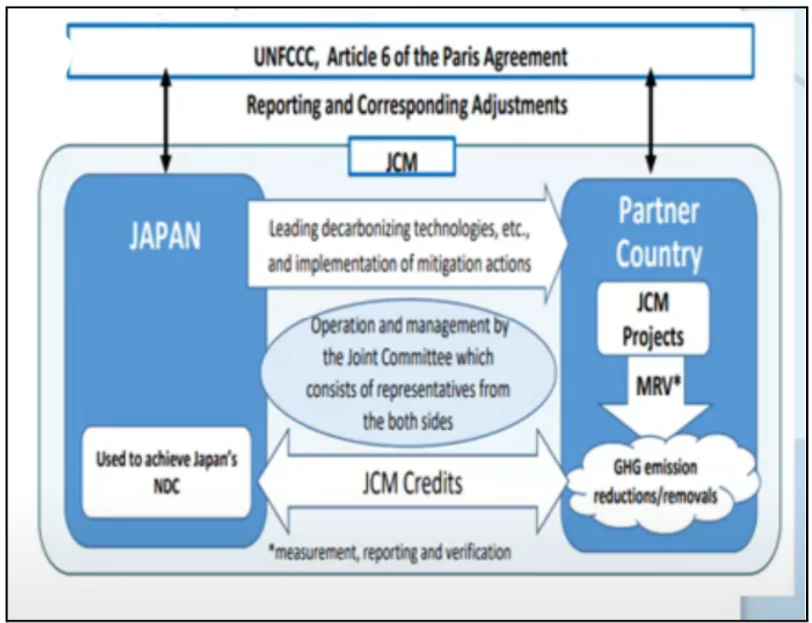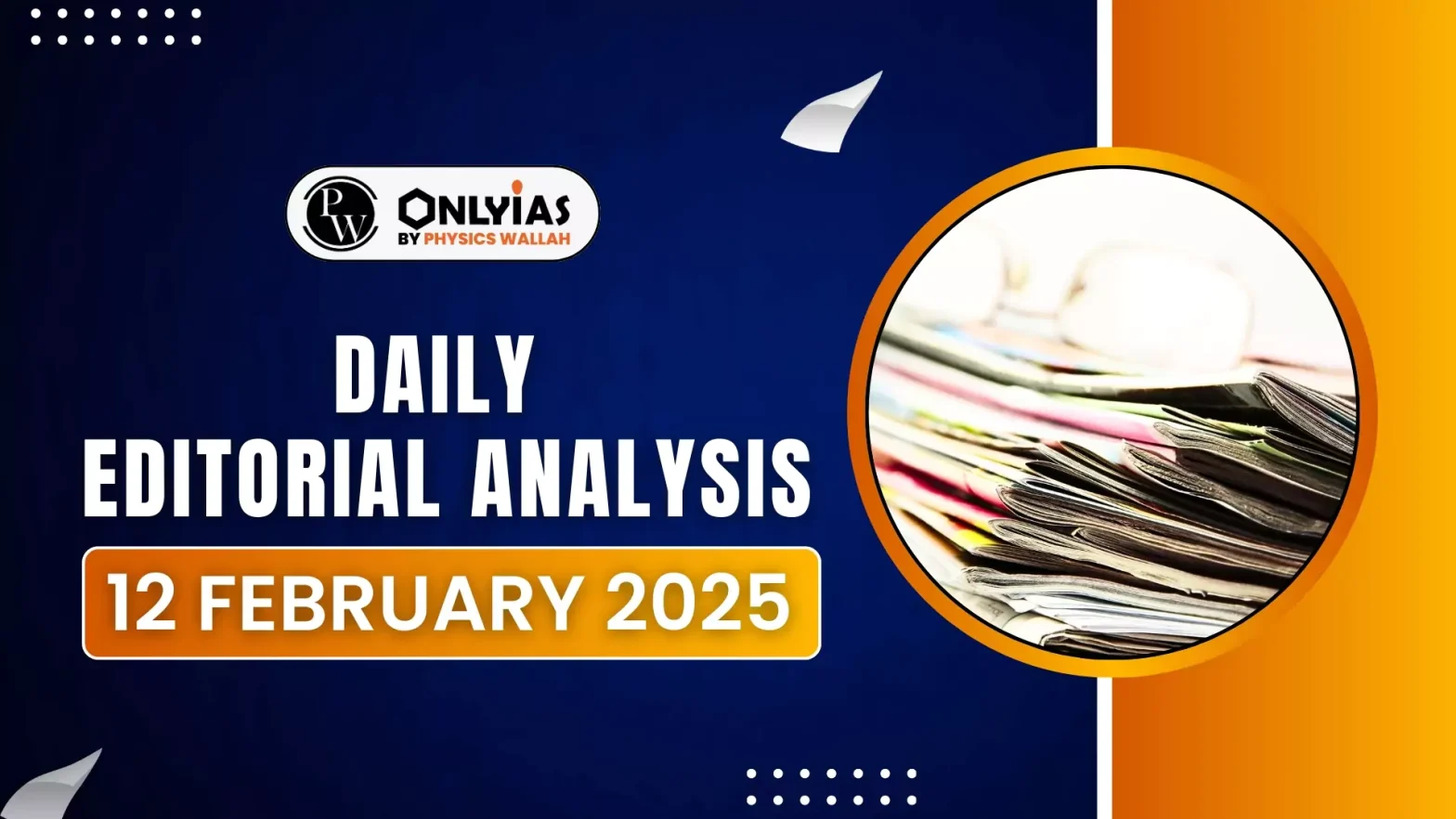COP29, held in Baku, Azerbaijan, has been termed the ‘Climate Finance COP,’ marking a significant step towards operationalizing key aspects of Article 6 of the Paris Agreement (PA).
Article 6 of the Paris Agreement (PA)
- Focus of Article 6: Article 6 emphasizes market-based mechanisms, offers potential for countries facing resource constraints to transition to carbon-neutral economies. The focus on cooperative approaches through Article 6 presents a strategic opportunity to meet global climate goals and support the Sustainable Development Goals (SDGs).
Enroll now for UPSC Online Course
Paris Agreement (2015)
The Paris Agreement is a legally binding international treaty on climate change. It was adopted by 196 Parties at the UN Climate Change Conference (COP21) in Paris, France, on 12 December 2015. It entered into force on 4 November 2016.
Objective: Its overarching goal is to hold “the increase in the global average temperature to well below 2°C above pre-industrial levels” and pursue efforts “to limit the temperature increase to 1.5°C above pre-industrial levels.” |
- Article 6.2: Article 6.2, enables countries to engage in the transfer of Internationally Transferred Mitigation Outcomes (ITMOs) between host and partner countries.
- This transfer allows countries to meet their Nationally Determined Contributions (NDCs) while offering flexibility in terms of tailored agreements
- ITMOs not only support emissions reductions in developing countries but also encourage technology exchange, capacity building, and financial investments, and more important south-south collaboration.
Carbon Credits
Internationally Transferred Mitigation Outcomes (ITMOs) under the Paris Agreement allow countries to trade carbon credits to meet climate goals more flexibly. For example, a farmer sells a carbon credit for planting a tree that removes one ton of CO2, which a steel company can use to reduce its reported emissions.
Joint Crediting Mechanism (JCM): Japan’s Approach
The Joint Crediting Mechanism (JCM) allows credit allocation through mutual consultation based on contributions to GHG (Greenhouse gases) reductions. Japan typically provides technology, funding, and capacity building, while the host country implements the project. The JCM Joint Committee reviews and issues credits, ensuring transparency by publicly sharing allocation details.

Article 6.4: Just like Article 6.2 established cooperation between governments, article 6.4 extends similar cooperation between private companies.
- Example: If Company A emits more carbon than its target, it could potentially purchase carbon credits from Company B, which has reduced its emissions or implemented projects that sequester carbon (e.g., planting trees or using clean technology).
|
Check Out UPSC NCERT Textbooks From PW Store
India and Article 6
- India’s Domestic Emissions Trading Scheme (ETS): India’s recent introduction of the Carbon Credit Trading Scheme (CCTS) in 2023 marks a significant step toward integrating market mechanisms into national policy.
- While not directly tied to Article 6.2, the CCTS aims to strengthen India’s institutions by establishing a transparent framework for carbon credit tracking and verification.
- Other Schemes by India: India’s prior experience with the Clean Development Mechanism (CDM), voluntary carbon market (VCM), Energy Saving Certificates (ESCerts), and Renewable Energy Certificates (REC) provides a solid foundation for engaging with international carbon markets under Article 6.2.
- Key Areas for International Collaboration: India has identified 14 key areas for international collaboration under Article 6.2, including renewable energy (RE), energy storage, and Carbon Capture, Utilization, and Storage (CCUS). These technologies such as green hydrogen and sustainable aviation fuel require advanced research, expertise, and significant investment.
- Partnership: India seeks partnerships with developed nations such as South Korea, the European Union, and Japan to facilitate these developments.
- South-South Cooperation: Article 6.2 provides India an opportunity to unlock large-scale climate finance through South-South cooperation, where countries under pressure to meet stringent NDCs can purchase ITMOs from India.
| India’s renewable energy sector, which attracted over $10 billion in foreign direct investment in 2022, could benefit from expanded ITMO transactions, supporting other developing nations in meeting their climate goals. |
- India’s Partnership with Africa for Climate Cooperation: One key pillar of Prime Minister Narendra Modi’s 10 principles for India-Africa engagement is economic cooperation, focusing on sustained engagement, building local capabilities, boosting agricultural productivity, and addressing climate change.
- This approach can help India meet its Nationally Determined Contributions (NDCs) while accessing carbon market opportunities to fund sustainable development projects across Africa.
Challenges in ITMO Sharing and Governance
- Shifting Burden: Developed countries may rely on low-cost emission reductions from India, potentially avoiding their own decarbonization efforts and shifting costly mitigation burdens onto India.
- Impact: For India, this could involve opportunity costs, as these reductions could otherwise support its own climate targets or sustainability goals.
- Lack of Transparency: Additionally, insufficient transparency and governance in ITMO mechanisms could lead to inefficiencies and exacerbate inequities, undermining India’s interests.
- Over-Dependence on ITMO: Over-reliance on ITMO transfers by partner nations may also hinder India’s broader goals, such as capacity building, green technology deployment, and climate-aligned economic growth.
Enroll now for UPSC Online Classes
Conclusion
COP29 and Article 6 offer India a key opportunity to access climate finance and technology transfer. By leveraging ITMOs and South-South cooperation, India can advance global climate goals while transitioning to a low-carbon economy. However, challenges in governance, transparency, and equity must be addressed to balance climate commitments with developmental priorities.
Ready to boost your UPSC 2025 preparation? Join PW’s UPSC online courses today!
![]() 12 Feb 2025
12 Feb 2025

